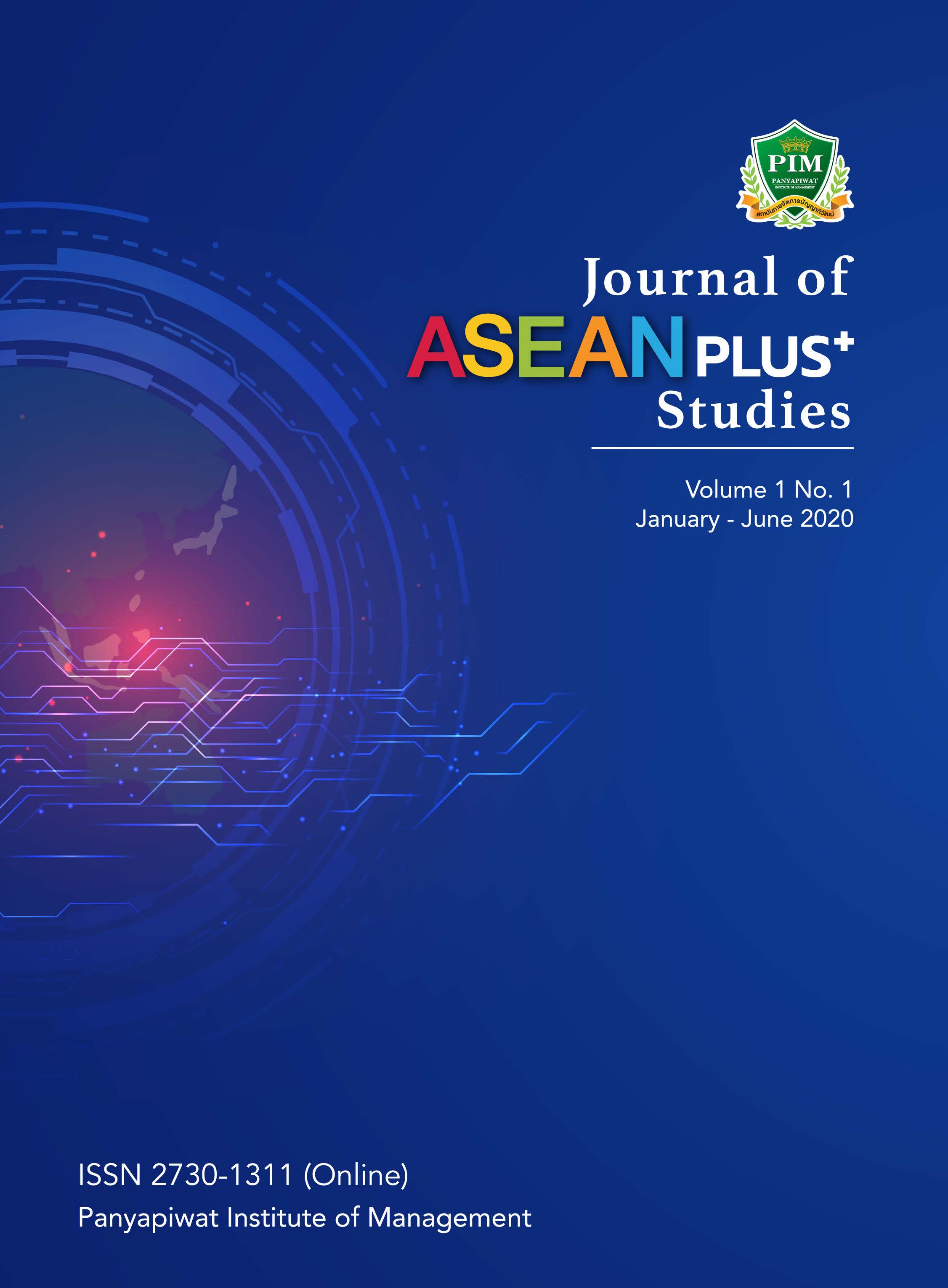Vol. 1 No. 1 (2020): January-June 2020

Foreword
Welcome to the inaugurating issue of the Journal of ASEAN PLUS+ Studies! It is a platform for publishing academic researches with a focus on government policy, business practice and cultural development in ASEAN and its partners such as countries in Asia Pacific.
The disruptive technologies in the digital economy, and the challenges to the international trade and the global capitalism system in the new normal of the post Covid-19 pandemic era attracted the attentions of the authors of this issue.
On the front of digital economy, Kachathan and Chaichotchuaung extend the Technology Acceptance Model (TAM) with variables such as digital inequality, personal affordability, infrastructure or digital policy to explain adoption of mobile payment in the cashless emerging markets.
On the challenges to the international trade and the global capitalism system, Rattana-amornpirom studies one important instrument to promote free trade in the region: ASEAN China Free Trade Area (ACFTA). With the empirical data on the utilization of ACFTA, she shows the benefits, opportunities as well as further barriers for the export of Thai agricultural products. Liao and Chen affirm export promotes R&D and innovation for Chinese enterprises with the method of Propensity Score Matching. In the most important area of trade in services for ASEAN countries, Chinprateep studies how attraction, facility and accessibility may impact tourism in the 10 members of ASEAN with indicators like tourist expenditure (for attraction), number of hotels (for facility) and investment in transportation (for accessibility). At a micro level for the domestic market, Thanabordeekij and Syers replicate the studies on customer loyalty, brand image and marketing mix in the setting of household liquefied gas in Thailand.
On the other side of the Pacific, Rosefielde scrutinizes the proposition of Stiglitz to transform America’s “liberal capitalism” into “progressive capitalism” by including progressive stakeholders in corporate decision-making, but warns contradictions and moral hazards inherent in stakeholder-shareholder co-sovereignty could turn his dream into a nightmare in today’s radical age.
Prof. Dr. Tang Zhimin
Editor-in-Chief





